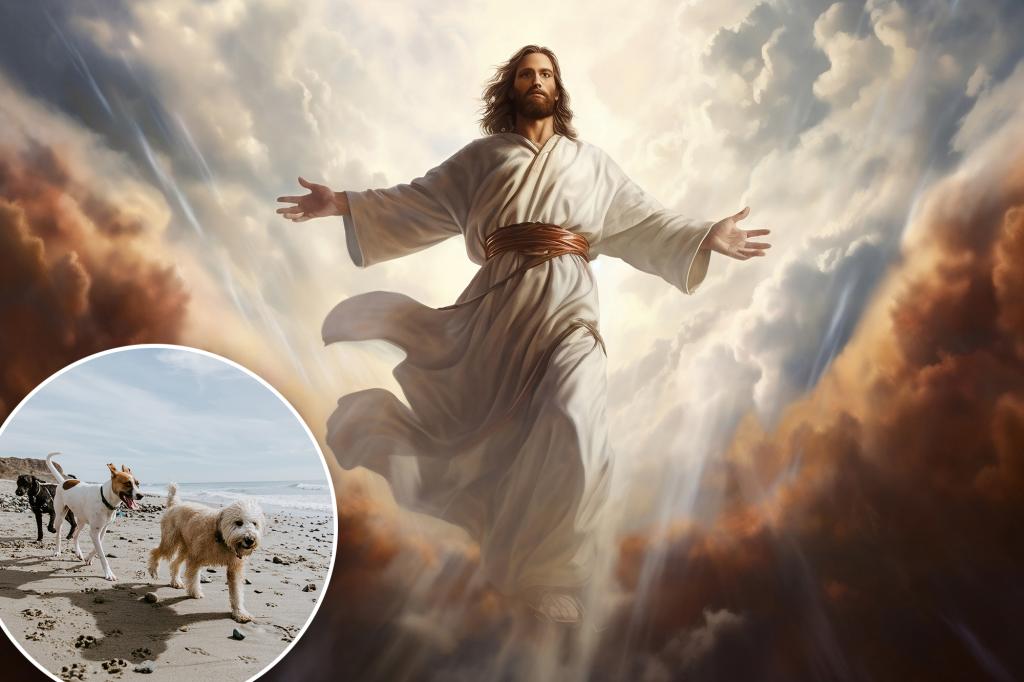The Rapture Revelation: A Modern Day Spiritual Frenzy
In the digital age where information spreads like wildfire, a South African pastor’s prophetic vision has captured the attention of millions worldwide. Pastor Joshua Mhlakela recently declared in an interview with CettwinzTV that Jesus Christ would return on September 23-24, 2024, triggering what Christians call “the rapture.” His declaration was unequivocal: “The rapture is upon us, whether you are ready or not.” This apocalyptic prediction coincides with Rosh Hashanah, the Jewish New Year, adding a layer of symbolic significance to the prophecy. For those unfamiliar with Christian eschatology, the rapture refers to the belief that both living and deceased faithful will ascend to meet Jesus “in the air,” marking the beginning of end-time events. While such predictions have occurred throughout history, what makes this particular forecast unique is how it has resonated across social media platforms, creating a phenomenon dubbed “RaptureTok” – a digital community where believers, skeptics, and the curious converge to discuss humanity’s potential final day on Earth.
The most fascinating aspect of this spiritual fervor isn’t necessarily the prophecy itself but rather the deeply human concerns it has unearthed. A quick search of “RaptureTok” on TikTok reveals hundreds of videos where people’s primary concern isn’t their own salvation but rather the fate of their beloved pets. This touchingly demonstrates how our bonds with animals have become central to our conception of paradise. Videos with hundreds of thousands of views feature people wondering if their dogs will accompany them to heaven, with one popular creator humorously envisioning angels assigned to each pet during the ascension: “Could you imagine the angel that’s assigned the one little chihuahua, they’re going up 1,000 miles per hour.” The comment sections of these videos overflow with sincere entreaties from pet owners expressing their hopes that their “fur babies” will join them in eternity. “I ask God all the time to please take my dogs when we’re raptured,” writes one commenter, while another confidently cites scripture: “Believe in the Lord Jesus, and you will be saved — you and your household,” asserting that their household definitely includes their beloved animals.
The emergence of “RaptureTok” illustrates how traditional religious beliefs adapt and transform within modern digital spaces. What might once have been discussed solemnly in church basements or whispered among believers has become a trending topic complete with memes, jokes, and earnest theological debates. This democratization of apocalyptic discourse allows for multiple perspectives to coexist – from the devoutly serious to the playfully skeptical. The phenomenon demonstrates how social media doesn’t merely replicate existing conversations but reshapes them entirely, creating new communities united by shared interests in spiritual matters. Unlike previous end-time predictions that spread through pamphlets or radio broadcasts, this prophecy lives in an ecosystem where creators can instantly respond to each other, forming a tapestry of interconnected content that ranges from practical “rapture tips” to elaborate jokes about the end times.
Humor serves as a powerful coping mechanism throughout this digital discourse. Many skeptics have embraced comedy as their response to the prophecy, with viral videos showcasing creative pranks planned for September 24th. One particularly popular video depicts someone planning to “lay out a couple of outfits in my driveway on sept 24th so when my neighbor walks his dog he will think me and my dog made it to heaven for the rapture and they didn’t.” Another creator humorously demonstrated their rapture preparation by showing themselves dramatically clutching their dog while gesturing upward, silently imploring God to take them both. These humorous takes reveal an important aspect of human psychology – our tendency to process existential uncertainty through laughter. Even those who might privately harbor concerns about the prophecy can find community in collectively poking fun at the situation, creating a shared experience that diminishes individual anxiety through group catharsis.
What makes this particular prophecy different from countless others throughout history is the central role of pets in the conversation. This preoccupation with animal salvation reflects a significant shift in how modern believers conceptualize the afterlife. Traditional religious texts offer limited guidance on whether animals join humans in paradise, yet contemporary believers have overwhelmingly decided that heaven without their beloved companions would be incomplete. Comments like “I have prayed for my fur babies to be raptured with me” reveal a theological innovation driven by love rather than doctrine. Pet owners interpret scripture through the lens of their emotional bonds, finding creative ways to include animals in salvation narratives. This represents a profound democratization of religious interpretation, where ordinary believers feel empowered to expand traditional understandings of salvation to include the creatures they cherish. The emphasis on pets also highlights how, for many modern people, their most profound emotional and spiritual connections are formed with animals who offer unconditional love in an increasingly complex human world.
As September 23-24 approaches, “RaptureTok” serves as a fascinating case study in how humanity processes predictions of cosmic significance. Whether the prophecy materializes or joins the long list of unfulfilled apocalyptic forecasts, the conversations it has sparked reveal much about our contemporary values and fears. The central concern for pets’ welfare demonstrates how deeply intertwined our lives have become with our animal companions, to the point where even our visions of eternity must include them. The humor surrounding the prophecy shows our collective resilience in the face of uncertainty, using laughter as a shield against existential dread. And the diverse reactions – from sincere preparation to skeptical jokes – highlight the pluralistic nature of modern spirituality, where traditional beliefs coexist with personal interpretations and secular perspectives. Whatever happens when those prophesied dates arrive, “RaptureTok” has already provided valuable insights into what matters most to people contemplating eternity: not streets of gold or divine glory, but the continued companionship of those they love most, including the four-legged members of their families.















